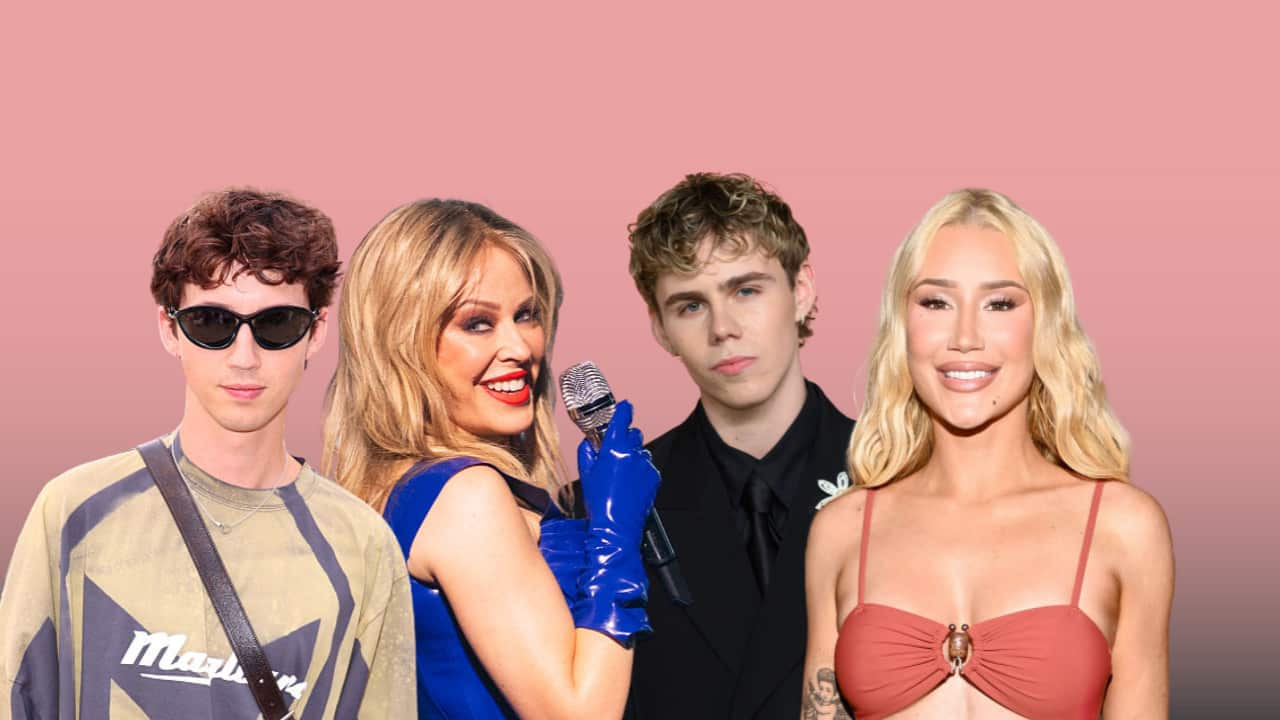Mitch Thompson from country/pop act Seaforth sounds straight out of Nashville — yet he grew up in Sydney. So why does he sing with an American accent?
"I have to really think about it to sing in an Australian accent," Thompson, 35, told The Feed.
"It's almost like a different section of the brain when I start singing — a different muscle memory of 'this is how words sound when I sing, this is how words sound when I talk'."
Thompson recalls being at a singing competition where he was told he sounded too similar to Missy Higgins, who sings with a strong Australian accent.
"One of the judges was like: 'You can't copy Miss Higgins' voice so much. It's a little too Aussie,'" Thompson said.
So, his singing accent shifted, and by the time he moved to Nashville, the world's country music capital, almost a decade ago, Thompson had lost all trace of Missy Higgins.
"Anytime I go off stage, there'll be at least one person that's like, 'Where's your accent go when you sing?' Or people that didn't know that Seaforth is Australian."
Seaforth has now amassed close to 500,000 monthly listeners on Spotify.

"The accent and how I sing is just purely based off the music I was listening to," Thompson said.
"There was never an active: 'I need to sound like Keith Urban' for it to work over here."
There's been a significant drop in local acts making it into Australia's top charts, partly due to the rise of streaming services such as Spotify with algorithms that favour US and UK acts, according to music researcher and former record label manager Tim Kelly.
"It used to be the case that you can make a living as an Australian artist in Australia ... like Hilltop Hoods ... or Powderfinger ... who sold most of their recordings and did most of their touring in Australia," Kelly told The Feed.
"Now it's deemed that there isn't enough money in the Australian market and you've got to have two other markets as well as Australia."
When the accent doesn't fit the song
The Australian accent can feel like a hindrance, due to the pronunciation of certain sounds, particularly 's' and 'r', according to Ariana Rigazzi, a vocal coach based in Melbourne.
"In one syllable you're pronouncing two vowels [in the Australian accent] … basically your tongue is moving while you're pronouncing that one syllable," Rigazzi said.
"And that can be a hindrance while you're singing. So it's easier to do an American vowel instead of an Australian vowel to be able to actually get to the note and not have your tongue move."
And Thompson says it would sound "jarring" if he sang in an Australian accent.
"You lose the rhymes in certain words that in an American accent would rhyme with the next [word] — you can make it rhyme," he said.
'You've got to sound more like us'
Australian artists are competing more than ever with the US and UK market to find an audience — and an accent or sound change may be encouraged by Australian labels to appeal to a wider audience, Kelly said.
"There's this gravity of conformity that for new artists that would say, if you want to succeed over here [predominantly in the US and UK] ... you've got to sound more like us."
"And the industry supports that pressure because managers and record labels and agents and everyone else is going: 'We want you to sound like the stuff that's doing well.'"

Algorithms within music streaming services are how many people now discover new artists; it also plays into the demand for Australian artists to adapt their sound.
"There's this pressure to get on the algorithm, to sound like other people, to be able to appeal to international markets by leaning into what works in those markets," Kelly says.
Do Australian musicians have to change their sound to find success?
Kelly says there's a cultural influence from international markets that has shaped the sound of Australian music — and it's worked. The Kid LAROI, Vance Joy, RÜFÜS DU SOL and Troye Sivan are among Australia's top streamed Spotify artists and yet international audiences would be forgiven for not realising they're Australian.
"[There is] increased pressure for you to be able to succeed in other markets and not get locked into an Australian context. There is a debate about whether if you become a triple j favourite — that's great in Australia — but it might lock you out of other markets," he said.
"Then you're just seen as an Australian artist."
There are exceptions. Acts like Amyl and the Sniffers, Shady Nasty, DMA's, Sticky Fingers, Stella Donnelly, Courtney Barnett, and Hilltop Hoods, who all sound distinctly Australian and have found international success.
"The artists that are doing well … Amyl and the Sniffers, King Gizzard, Tame Impala have an Australian-ess about them that has actually served them well in an international context," Kelly said.
Amyl and the Sniffers, whose sound is defined by the distinctive voice and accent of lead singer Amy Taylor, recently played at Glastonbury festival in the UK: and Thompson believes global audiences are waiting with open arms to embrace more Australian-sounding music.
"An Australian accent would actually stand out more than anything in this market."
Through award winning storytelling, The Feed continues to break new ground with its compelling mix of current affairs, comedy, profiles and investigations. See Different. Know Better. Laugh Harder. Read more about The Feed
Have a story or comment? Contact Us


